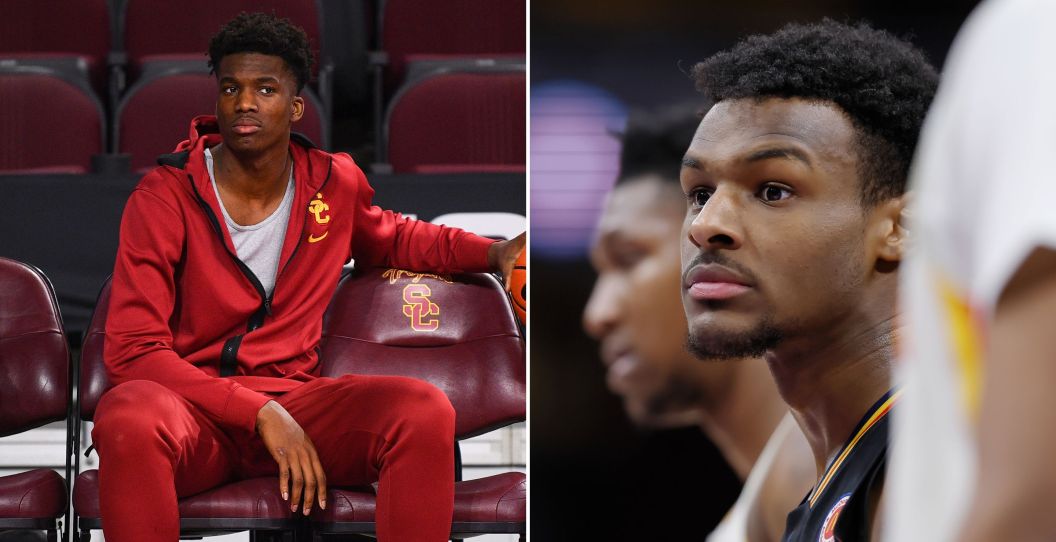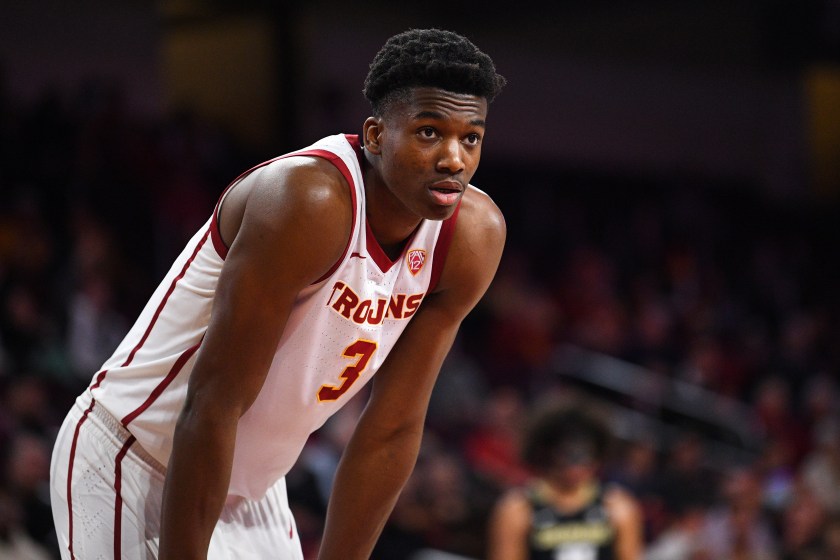On Monday morning, Bronny James, son of NBA superstar LeBron James, collapsed during a USC Trojans basketball workout while suffering a cardiac arrest. He was treated by the school's medical staff and then taken to a hospital. A spokesperson for the James family released a statement Tuesday that said Bronny was in "stable condition and no longer in ICU."
Videos by FanBuzz
This isn't the first time a player has collapsed during a USC workout. In fact, this is the second straight year a Trojan player has suffered a cardiac arrest.
When USC's Vincent Iwuchukwu Went Down a Year Ago
On July 1, 2022, Vincent Iwuchukwu went into a cardiac arrest and collapsed on the court. Later recounting the incident, Iwuchukwu said, "I sat down, and I just got, like, super dizzy out of nowhere. ... I was about to drink my water, and I was like, 'Bro, I'm so dizzy.' And bam, that's all I remembered."
In under a minute from his collapse, the medical staff began performing CPR and used an automated external defibrillator. Iwuchukwu instantly regained consciousness once the AED was deployed. Less than six months after the incident, Iwuchukwu was cleared to play basketball and join the Trojans on the court, making his USC debut on Jan. 12 against the Colorado Buffaloes.
According to Dr. Michael Ackerman, a genetic cardiologist with the Mayo Clinic, 5,000-10,000 people ages 1-25 suffer from sudden cardiac events every year. At least 1 in every 200 people are believed have a genetic predisposition to a cardiac event. So why would two players at USC suffer a cardiac event within back-to-back years?
According to cardiologists who spoke to the LA Times this week, it's most likely that both players had a genetic heart condition, although we won't know for sure until there's a diagnosis for what happened to James.
But if this is the case, how does this happen twice, in just over a year? Are officials not sufficiently screening for issues before they occur? Well, it's not that easy to determine what the processes are at USC. And it's unlikely that tests will tell us why two seemingly healthy 18-year-olds suffered a cardiac arrest. And screenings don't necessarily detect issues anyway, Ackerman said.
This is the second time in two years USC basketball has seen a cardiac arrest in a player. Last year, Vince Iwuchukwu was treated and eventually came back to play after months. With Bronny James there are still more questions than answers about what's next. pic.twitter.com/jNA3QnEPKa
— Omar Jimenez (@OmarJimenez) July 26, 2023
"Many of these cardiac arrest survivors, you could have screened them every day, including 10 minutes before the collapse happens, and they would've passed all of our screening tests with flying colors," he said.
Soon after his cardiac event, Iwuchukwu was initially told he would never play basketball again. Then he had surgery to install an implantable cardioverter-defibrillator in his chest. The device allows USC to monitor his heart at all times; and if he were to suffer another cardiac arrest, the device would give his heart a jolt to help regulate it.
Again, it's too early to determine what caused James' cardiac arrest and what similarities there might be to last year's incident with Iwuchukwu. But it is very likely that the USC Trojans men's basketball team just has had unfortunate luck with these situations. Luckily, though, both young men are still alive, and hopefully Bronny can get back to the court soon.

